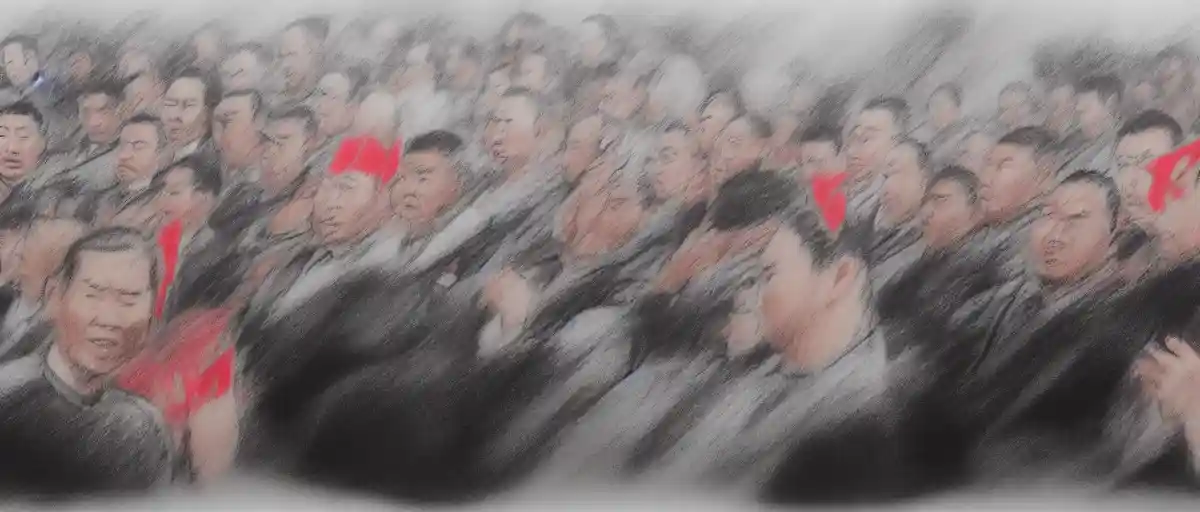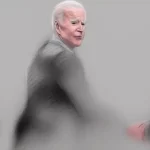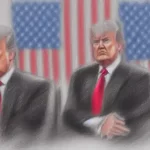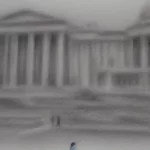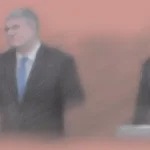You May Also Be Interested In:
Chinese Official’s Uyghur Genocide Denial Triggers Outrage in Media Encounter
The recent meeting between Chinese official Wang Yi and a conglomerate of left-wing media outlets has stirred up a heated debate surrounding the ethical responsibilities of the media when it comes to giving a platform to individuals who deny human rights atrocities. On one side, proponents argue that engaging in dialogue with controversial figures like Wang Yi is essential to understand different perspectives and foster potential diplomatic solutions. On the other side, critics contend that by providing a platform for someone who denies the Uyghur genocide, the media risks legitimizing their harmful narrative and undermining the plight of the Uyghur Muslim minority.
Supporters of the media’s decision to meet with Wang Yi argue that open dialogue and engagement with diverse viewpoints are crucial for effective journalism. They believe that it is necessary to hear all sides of the story, even when it involves individuals who hold unpopular or controversial views. By engaging with Wang Yi, these media outlets hope to shine a light on the Chinese government’s perspective, promoting a nuanced understanding of the complex geopolitical dynamics at play.
However, opponents argue that the media should exercise caution and ethical judgment when deciding whom to grant a platform. Wang Yi’s denial of the Uyghur genocide, which contradicts overwhelming evidence and global consensus on the issue, raises concerns about the media’s responsibility to verify information and avoid spreading misinformation. By giving someone like Wang Yi a platform, the media risks normalizing and amplifying views that dismiss the suffering of a marginalized population, potentially damaging the credibility of independent journalism.
In this case, both sides have valid points. While engaging in dialogue with controversial figures can lead to a more comprehensive understanding of complex issues, it is crucial for the media to weigh the ethical implications and potential harm that can arise from granting a platform to individuals who deny well-documented human rights abuses. Striking a balance between free speech and responsible journalism is a challenging task, but one that is essential for upholding the integrity of the media’s role as an objective source of information.
Ultimately, it is important for the media to exercise critical judgment and carefully consider the implications of their actions. Providing a platform for denial and minimizing grave human rights violations can have detrimental effects on the victims and the broader public’s perception of the issue. While seeking diversity of opinions is crucial, it should never come at the cost of perpetuating misinformation or compromising the recognition and justice that victims of human rights abuses deserve. The media plays a crucial role in facilitating informed public discourse, and the responsibility lies not only with journalists but also with the readers to critically engage with the information presented and seek multiple perspectives.
Here's A Video We Thought You Might Also Like:
Author Profile

- I'm a features writer, specializing in arts and culture, and I enjoy exploring the political dimensions of artistic expression. Through my work, I aim to highlight how art can challenge the status quo and provoke political discussions.
Latest entries
 Breaking News2023.12.19Co-Chair’s Earth-shattering Admission Biden’s Election at Risk Due to Border Crisis!
Breaking News2023.12.19Co-Chair’s Earth-shattering Admission Biden’s Election at Risk Due to Border Crisis! Breaking News2023.12.17Unprecedented Deportation Operation Threatened under Re-Election of President Trump
Breaking News2023.12.17Unprecedented Deportation Operation Threatened under Re-Election of President Trump Breaking News2023.12.13Awesome Development Hunter Biden’s Mysterious Capitol Hill Meeting Revealed!
Breaking News2023.12.13Awesome Development Hunter Biden’s Mysterious Capitol Hill Meeting Revealed! Breaking News2023.12.13Senator Ernst’s Bold Move to Secure Border Funding A Game Changer or Wasted Effort
Breaking News2023.12.13Senator Ernst’s Bold Move to Secure Border Funding A Game Changer or Wasted Effort
